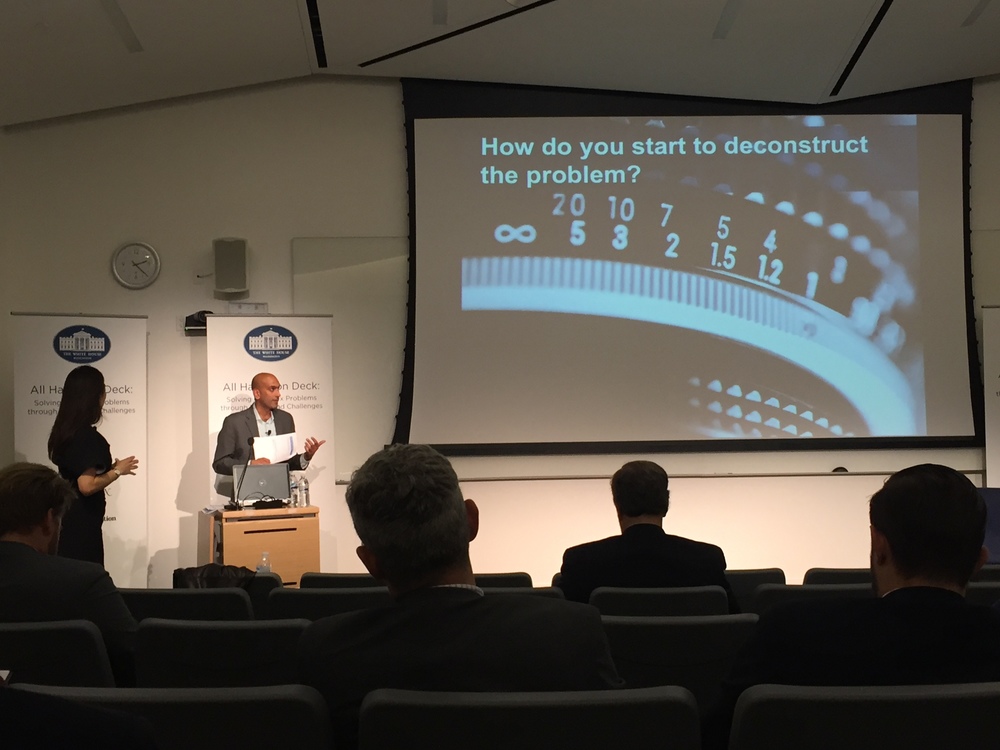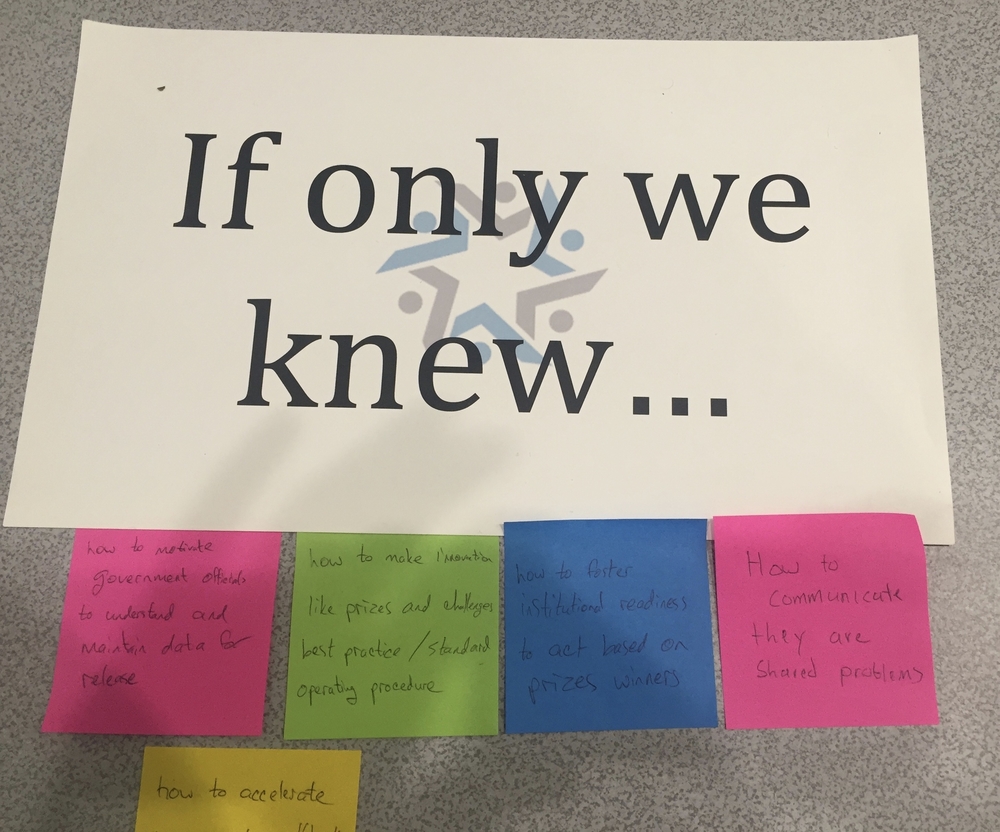
At the the recent “ All Hands on Deck: Solving Complex Problems through Prizes and Challenges,” an event hosted by Georgetown University in collaboration with the White House, Case Foundation and Joyce Foundation to mark the 5th anniversary of Challenge.gov, the MacArthur Foundation Research Network on Opening Governance embarked on a fact-finding mission with the diversity of practitioners of prize-backed contests and grand challenges assembled at the event.
The event, which brought together over 150 Federal, state, and local government leaders, as well as representatives from civil society and the private sector, featured panels, talks and workshops. You can look back at the discussions held during the event at #publicprizes and watch videos of plenary talks and workshops here.
The Network members in attendance – Jesper Christiansen, Erik Johnston and Andrew Young – used the opportunity to pose two central questions to the assembled practitioners: 1) What questions in the field of prizes and challenges make you think, “If only we knew…”; and 2) What’s next for the field?

The responses collected – from players in the field like New York City’s Chief Technology Officer Minerva Tantoco and U.S. Deputy Director for Technology and Innovation Tom Kalil – will be used to create a detailed research agenda and roadmap to guide future research into and pilot projects built around prizes and challenges. This effort will build on previous work by the Network to articulate the current state of research in the field. Some of the major findings surfaced at the event are listed below.
In the field of prizes and challenges, if only we knew…
- …how to accelerate cross-sector collaboration around prize development.
- …how to foster institutional readiness to act on the innovative solutions provided by prize winners.
- …how to communicate to diverse stakeholders – inside and outside of government – that big public problems are shared among actors across sectors.
- …how to motivate government officials to understand and maintain the quality of data that could prove useful to solvers outside of government.
- ..how to make innovations like prizes and challenges the best practice and standard operating procedure in relevant government areas.
- …how to maintain long-term interest from the solver community in prizes that can take years to move from announcement to solution.
- …in cases when the solution to a given problem is well known, how to avoid simply deferring opportunity costs to the private sector instead of leveraging internal government capabilities.
What’s next in the field?
- A greater focus on mobilizing diverse incentives for participation beyond prize money.
- Moves to foster greater inclusiveness in the solver community.
- Increased co-creation of prizes and challenges through partnerships between government, civil society and private sector stakeholders.
- A higher level of involvement among the public, particularly the expert public, in the development of the problem definitions for prizes and challenges.
- A more streamlined process for verifying and judging solutions, reducing undue expenditures in that area of prizes.
To date, more than 72 different Federal agencies, departments and bureaus have led prize-backed challenges in the U.S., with other levels of government and actors in the private and civil sectors adding even more efforts to the total work. The U.S. Federal Government’s efforts have catalyzed tens of thousands of citizen solvers to work toward solutions to major public problems. In the lead up to the event, Challenge.gov highlighted 15 of the biggest success stories arising from the platform to date, including solutions related to oil spill cleanup, detecting salmonella in food and breast cancer treatment.
To mark the anniversary, the White House also released a Fact Sheet highlighting new commitments to expand and foster the innovation prize community. The GovLab and Research Network’s Network of Innovators platform, which was launched in the U.S. prize community during the event, was one of the included commitments.

